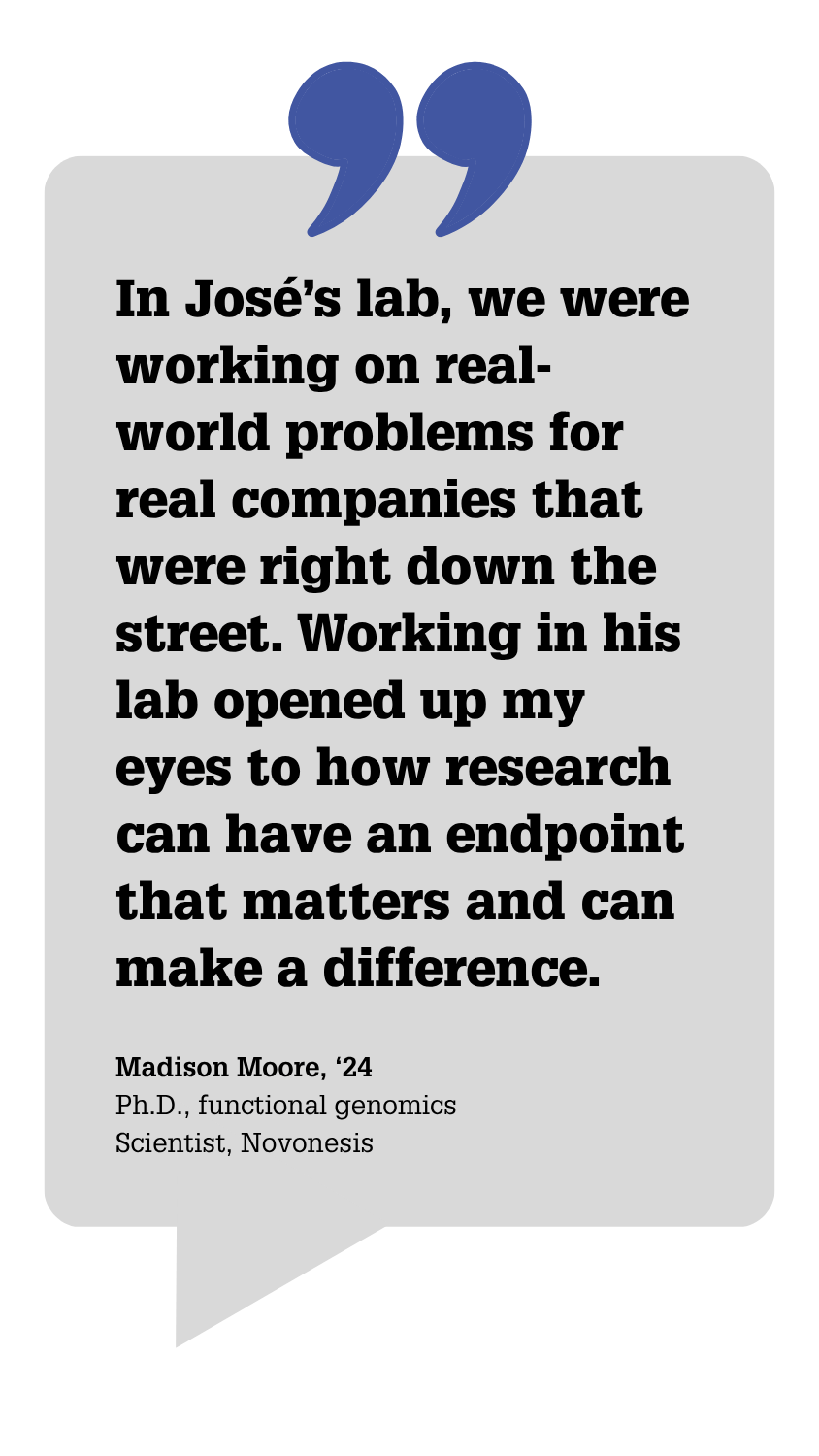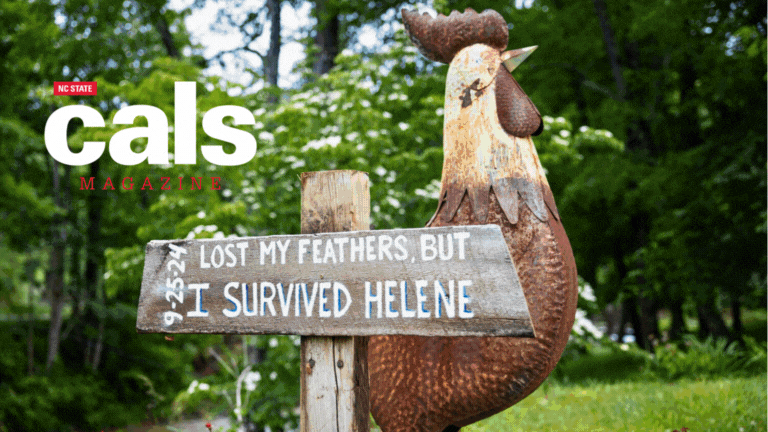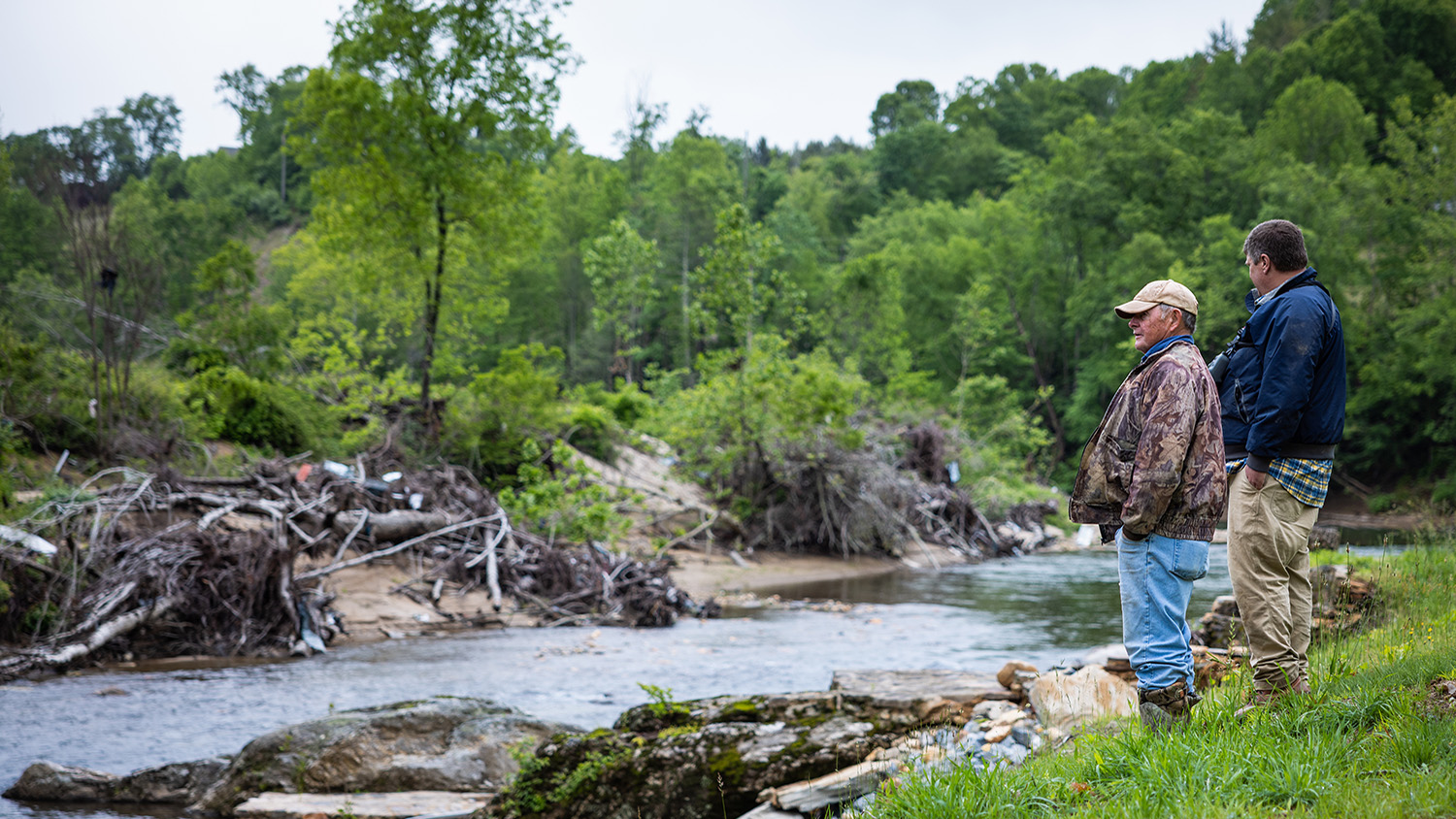Gut Check
José Bruno-Bárcena harnesses fermentation to create marketable products that can improve our gut health.

Deep in the limestone mountains of Asturias, Spain, wheels of a precious blue cheese stacked on wooden shelves emitted an aroma so wild and musty it made his eyes water. He cut one open to reveal rich networks of blue-green veins and deep blue pockets. Such are the childhood memories of José M. Bruno-Bárcena, who grew up fascinated by the microscopic world inside his extended family’s Cabrales cheese caves.
“I was always very drawn to the universe of bacteria that makes this famous cheese from my homeland,” he says.

He took that curiosity with him all the way to Argentina in his quest to pursue his passion for biology. Since arriving at NC State University over 20 years ago, Bruno-Bárcena, a professor in the Department of Plant and Microbial Biology, has applied his love of fermentation and microbes to much more than cheese. He has developed biodegradable plastics, discovered prebiotics, evaluated fungicides and explored new biofuels. Though varied, his research always centers on the uncommon intersection of bioprocessing and molecular biology, human health, and the environment.
Far from the mountains of northern Spain, Bruno-Bárcena’s lab in the heart of one of the world’s preeminent biotech hubs has allowed him to form partnerships with many private companies. He lends his bioprocessing expertise to conduct economic feasibility studies and help solve industry challenges.
“The goal with any project we took on was making sure that it didn’t stay within the four walls of our lab,” says Madison Moore, a former Ph.D. student of Bruno-Bárcena.
With the entrepreneurial spirit that Bruno-Bárcena embodies, his ideas and discoveries were bound to find new life beyond the confines of campus. In 2022, he joined forces with Andrea Azcarate-Peril, a professor at UNC-Chapel Hill, to launch a company based on their research. Ummino was founded with the goal of addressing unhealthy aging due to imbalances in the gut microbiome.
As we age, we are exposed to processed foods, pollution, antibiotics and other stressors that weaken our gut microbiome. This community of microorganisms helps us digest our food, absorb nutrients and strengthen our immune system. When it’s compromised, we are left more vulnerable to chronic diseases, digestive issues and mental health problems. For these reasons and more, the gut microbiome could be a key to unlocking the secrets to healthy aging.

Through his company, Bruno-Bárcena is targeting weakened guts with two different prebiotic solutions: a prebiotic powder and a lactose-converting enzyme.
For the powder, Bruno-Bárcena says he started with a simple question: “What is in breast milk that is so good as to nourish our babies?” And then: “Can we deconstruct breast milk and bring its health benefits to everybody?”
After decades of investigating these questions, Bruno-Bárcena and his collaborators have developed Hummino, a prebiotic that selectively restores the balance in our microbiomes and boosts our immune system. The 20 years of science behind Hummino is based on compounds found in human breast milk called human milk oligosaccharides (HMOs), which are responsible for supporting the development of a newborn’s immune system by feeding their microbiome.

The second solution — the enzyme — was developed to “transform milk into a superfood” by converting the lactose in dairy products into fiber. Not only does it improve the digestibility of products like yogurt and milk, Bruno-Bárcena says, it also reduces the sugar content and produces prebiotic fiber that feeds a healthy microbiome — a triple win for dairy lovers.
Yogurt companies could use Bruno-Bárcena’s enzyme to create a yogurt with less lactose, more fiber and 55% to 90% less sugar, all without raising the price for the consumer.
“This is food as medicine,” Bruno-Bárcena says. “Instead of the food we eat making us sick, we can eat food that rebuilds our microbiome and makes us healthier.”
Bruno-Bárcena has come a long way from the dairy farms of Spain to his dairy-transforming lab in Raleigh. But something tells us he has more ideas in the works — they just need a little more time to ferment.
- Categories:


